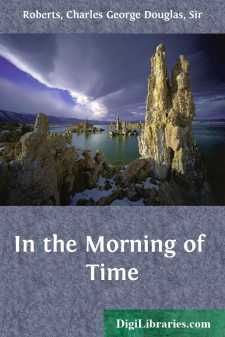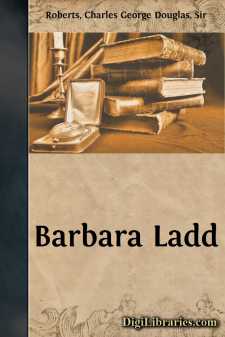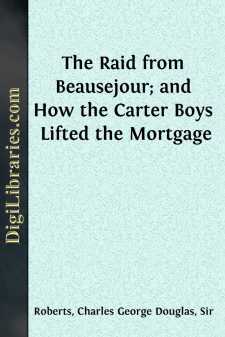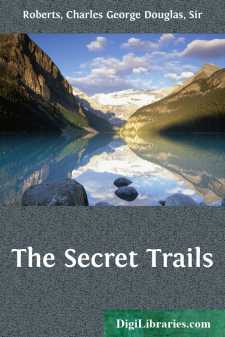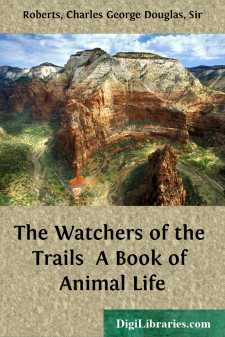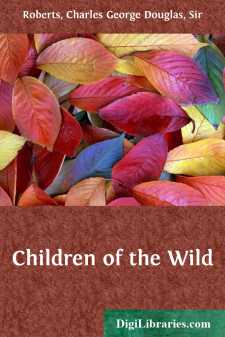Categories
- Antiques & Collectibles 13
- Architecture 36
- Art 48
- Bibles 22
- Biography & Autobiography 813
- Body, Mind & Spirit 142
- Business & Economics 28
- Children's Books 17
- Children's Fiction 14
- Computers 4
- Cooking 94
- Crafts & Hobbies 4
- Drama 346
- Education 46
- Family & Relationships 57
- Fiction 11829
- Games 19
- Gardening 17
- Health & Fitness 34
- History 1377
- House & Home 1
- Humor 147
- Juvenile Fiction 1873
- Juvenile Nonfiction 202
- Language Arts & Disciplines 88
- Law 16
- Literary Collections 686
- Literary Criticism 179
- Mathematics 13
- Medical 41
- Music 40
- Nature 179
- Non-Classifiable 1768
- Performing Arts 7
- Periodicals 1453
- Philosophy 64
- Photography 2
- Poetry 896
- Political Science 203
- Psychology 42
- Reference 154
- Religion 513
- Science 126
- Self-Help 84
- Social Science 81
- Sports & Recreation 34
- Study Aids 3
- Technology & Engineering 59
- Transportation 23
- Travel 463
- True Crime 29
Charles George Douglas Roberts
Charles George Douglas Roberts (1860-1943) was a prominent Canadian poet and novelist often referred to as the "Father of Canadian Poetry." He played a crucial role in the Confederation Poets, a group that significantly contributed to the establishment of a distinct Canadian literary voice in the late 19th and early 20th centuries. Roberts is also well-known for his nature writing, particularly his animal stories, which combined realistic detail with vivid imagination.
Author's Books:
Sort by:
Where the Five Rivers flow down to meet the swinging of the Minas tides, and the Great Cape of Blomidon bars out the storm and the fog, lies half a county of rich meadow-lands and long-arcaded orchards. It is a deep-bosomed land, a land of fat cattle, of well-filled barns, of ample cheeses and strong cider; and a well-conditioned folk inhabit it. But behind this countenance of gladness and peace broods...
more...
CHAPTER I THE WORLD WITHOUT MAN It lay apparently afloat on the sluggish, faintly discolored tide––a placid, horse-faced, shovel-nosed head, with bumpy holes for ears and immense round eyes of a somewhat anxious mildness. The anxiety in the great eyes was not without reason, for their owner had just arrived in the tepid and teeming waters of this estuary, and the creatures which he had already seen...
more...
CHAPTER I. She knew very well that she should have started earlier; but if there was one thing that could daunt her wayward and daring little spirit, it was the dark. Now, as she stood, wide-eyed and breathless with suspense, beside her open window, the face of the dark began to change. A gray pallor came over it, and on a sudden she was aware of a black horizon line, ghostly, lonely beyond words, far...
more...
CHAPTER I."BEAUBASSIN MUST GO!"On the hill of Beauséjour, one April morning in the year 1750 A.D., a little group of French soldiers stood watching, with gestures of anger and alarm, the approach of several small ships across the yellow waters of Chignecto Bay. The ships were flying British colors. Presently they came to anchor near the mouth of the Missaguash, a narrow tidal river about two...
more...
The Vagrants of the Barren With thick smoke in his throat and the roar of flame in his ears, Pete Noël awoke, shaking as if in the grip of a nightmare. He sat straight up in his bunk. Instantly he felt his face scorching. The whole cabin was ablaze. Leaping from his bunk, and dragging the blankets with him, he sprang to the door, tore it open, and rushed out into the snow. But being a woodsman, and...
more...
One side of the ravine was in darkness. The darkness was soft and rich, suggesting thick foliage. Along the crest of the slope tree-tops came into view—great pines and hemlocks of the ancient unviolated forest—revealed against the orange disk of a full moon just rising. The low rays slanting through the moveless tops lit strangely the upper portion of the opposite steep,—the western wall of the...
more...
The Black Boar of Lonesome Water I The population of Lonesome Waterâsome fourscore families in allâacknowledged one sole fly in the ointment of its self-satisfaction. Slowly, reluctantly, it had been brought to confess that the breed of its pigs was not the best on earth. They were small, wiry pigs, over-leisurely of growth, great feeders, yet hard to fatten; and in the end they brought but...
more...
Last Bull That was what two grim old sachems of the Dacotahs had dubbed him; and though his official title, on the lists of the Zoölogical Park, was “Kaiser,” the new and more significant name had promptly supplanted it. The Park authorities—people of imagination and of sentiment, as must all be who would deal successfully with wild animals—had felt at once that the name aptly embodied the...
more...
The Freedom of the Black-faced Ram n the top of Ringwaak Hill the black-faced ram stood motionless, looking off with mild, yellow eyes across the wooded level, across the scattered farmsteads of the settlement, and across the bright, retreating spirals of the distant river, to that streak of scarlet light on the horizon which indicated the beginning of sunrise. A few paces below him, half-hidden by a...
more...
CHAPTER I THE LITTLE FURRY ONES THAT SLIDE DOWN HILL In the brown, balsam-smelling log cabin on the shores of Silverwater, loveliest and loneliest of wilderness lakes, the Babe's great thirst for information seemed in a fair way to be satisfied. Young as he was, and city-born, the lure of the wild had nevertheless already caught him, and the information that he thirsted for so insatiably was all...
more...



